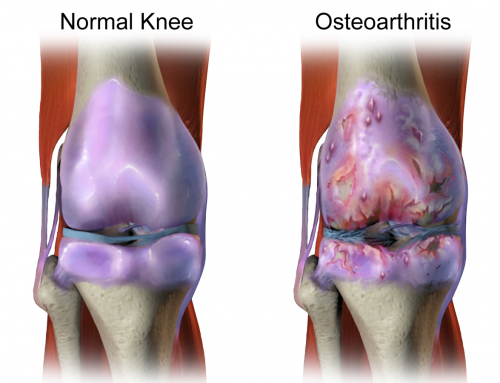 Did you know that, in a way, you have two brains? Because there is such a large network of nerve cells in the gastrointestinal system, or “gut,” it is often referred to as the “second brain.” The gut contains more neurons than either the spinal cord or your peripheral nervous system. This “second brain,” and all of the microbes that live there, helps influence our mood and emotion, and even learning and memory. It may also influence the risk of psychiatric and neurological disorders, such as anxiety, depression, and even autism. I often hear from my patients that they never had depression or anxiety until they started having gut health problems.
Did you know that, in a way, you have two brains? Because there is such a large network of nerve cells in the gastrointestinal system, or “gut,” it is often referred to as the “second brain.” The gut contains more neurons than either the spinal cord or your peripheral nervous system. This “second brain,” and all of the microbes that live there, helps influence our mood and emotion, and even learning and memory. It may also influence the risk of psychiatric and neurological disorders, such as anxiety, depression, and even autism. I often hear from my patients that they never had depression or anxiety until they started having gut health problems.
One of the fascinating ways gut microbes communicate with the brain is directly through the vagal nerve, which connects the network of nerves in the gut to the brain. There is even a treatment for resistant depression that involves implanting a device in the gut to stimulate the vagus nerve. Gut microbes also affect the brain through metabolites, or molecules that are produced by microbes in the gut that enter the blood and circulate to regions of the brain where they affect behavior. In fact, a majority of your serotonin is made in the gut.
Gut health is critically important not just for mental and emotional health, but also physical health. Your intestinal flora (bacteria) affects your digestion, heart, skin, immune system, and even your weight. Beneficial bacteria and yeast secrete enzymes that help us break down our food so we can better absorb nutrients from it. These bacteria also help us make some of our vitamins, such as vitamin K and biotin. Vitamin K helps with blood clotting and healthy bone formation. Biotin is important for the healthy metabolism of fats and carbohydrates and it also helps to ensure you have healthy looking skin and hair.
The heart is affected positively or negatively by the presence and activity of gut microbes. Gut problems can lead to hardening of the arteries and general inflammation.
Do you have an unpleasant or unsightly skin condition? I have repeatedly seen in my practice that to clear up the skin, we have to heal the gut. Patients suffering eczema, acne, and psoriasis all report noticeable improvement as we work to heal the gut. Why? Because compromised intestinal permeability, as well as dysbiosis (good and bad bacteria out of balance in the gut), leads to inflammation. Inflammation significantly contributes to many health problems in the body, including skin problems. Also, remember that your body eliminates toxins through the skin. So if you have, for example, chronic constipation, then your gut is not doing an efficient job eliminating toxins through your intestinal tract. The body still has to get rid of them – they have to go somewhere – so more toxins have to be eliminated through your skin instead. Do you think this might lead to skin problems?
What about the immune system? Beneficial bacteria help signal the immune system to take action against foreign invaders to ward off infection. And 70-80% of this critical part of your immune system lives in (you guessed it) your gut. This makes perfect sense when you consider that your gut is your gatekeeper! It is through the gut that the majority of things in the environment, good and bad, enter your body. It’s a good thing that these materials have to pass through your immune system to get inside. We want that first line of defense to be as healthy and vigorous as possible.
Healthy Weight and Gut Health
A healthy weight also depends largely on good gut health. The makeup of gut bacteria tends to differ between lean people and obese people. Considerable research links obesity to poor gut health and bad gut flora. This makes sense when you think about the body’s energy reserves and how they are used. If both the immune system and general metabolism need energy, the immune system will take priority, because it’s a live-saving line of defense. An unhealthy gut draws lots of energy to be put into the immune system, which is busy fighting infection and gut inflammation. Your metabolism suffers because there’s not enough energy to go around. A depressed metabolism means (among other very bad things) an expanded waistline.
Also, one of our goals in weight loss is to shift the metabolism from burning sugar to burning fat. The body does not do both at the same time, so if you’re burning sugar, you not burning off fat. When does the body shift to sugar-burning mode? When it is fighting off infection, or dealing with inflammation. So the bottom line is: if you’re struggling to lose weight, working on gut health is a very important thing you can bring to the fight.
If you feel depressed or on edge, or have constipation, diarrhea, gas, bloating, acid reflux, or similar woes, these are all signs that your gut needs help. To start the process of improving gut health of the gut, I (ahem) start at both ends. We begin with food allergy and stool testing. Food allergy testing helps us fine-tune your diet to decrease inflammation and leaky gut. Stool testing gives us a good idea of how well you are digesting your food, the presence or absence of pathogens, parasites, or bad bacteria, and the critically important balance of your good bacteria. If this sounds like you, give us a call, because it’s time to clean up your gut!



